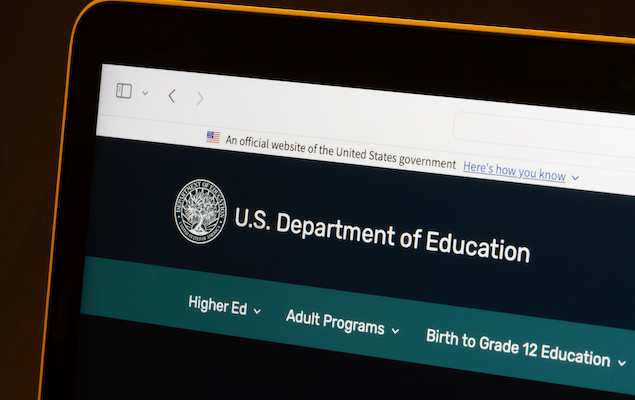Department of Education considers regulatory changes to student aid programs
ADA shares priorities in request for feedback

The ADA is asking the U.S. Department of Education to expand income-based loan repayment options and curtail interest capitalization.
This is in response to the Department of Education’s request for feedback about the Public Service Loan Forgiveness program, various income-driven student loan repayment plans and ways to help streamline current federal student financial assistance programs.
The department is proposing to establish a negotiated rulemaking committee to consider whether and how Title IV regulations are impacting institutions of higher education, states and other partners. These regulations refer to the federal student aid programs authorized under Title IV of the Higher Education Act of 1965. Title IV contains nine parts that authorize a broad array of programs and provisions to assist students and their families in accessing a postsecondary education.
In comments filed May 5, the Association noted that more than three quarters of dental school graduates with educational debt are starting their careers owing more than $312,000 in student loans.
The comments delve into the ADA’s goals of expanding income-based loan repayment, curtailing interest capitalization, ensuring accreditation remains intact, reforming the Public Service Loan Forgiveness program, and selecting negotiators with postgraduate financing expertise. The ADA urged the following:
• Expand the number of income-based repayment options for educational loans.
• Eliminate all nonstatutory “capitalizing events” that cause unpaid interest to become part of the principal balance of the borrower’s student loan.
• Allow creditors to continue their oversight of institutions of higher education and ensure that federal student loans can be used only for accredited programs.
• Simplify the application process, clarify eligibility and qualification criteria, and refine the definition of “qualifying employers” in the Public Service Loan Forgiveness program.
• Appoint individuals to the negotiated rulemaking committee who have intimate knowledge of what is driving postgraduate borrowing, not just undergraduate borrowing.
“These changes will not eliminate the debt hardship for early career dentists, but they will help offset the unprecedented financial challenges these essential health care providers face at graduation,” the ADA said.



